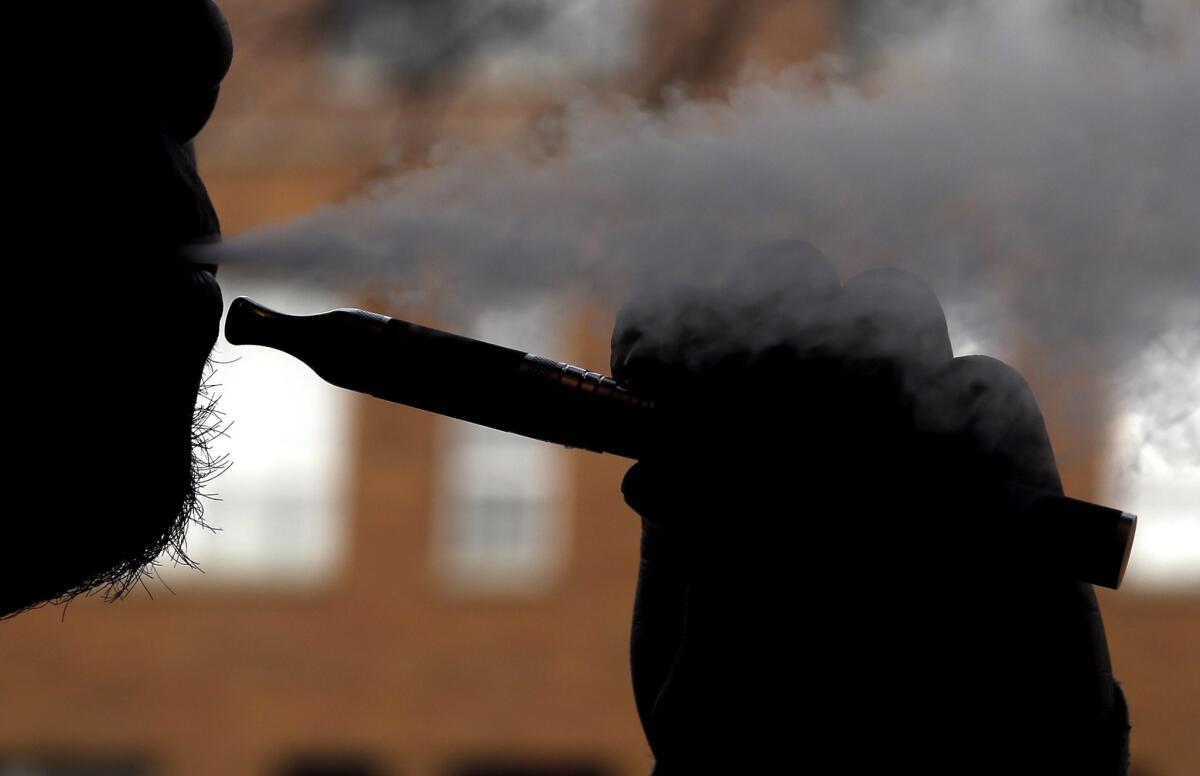Glendale officials move to ban flavored vaping products

- Share via
Glendale officials have taken a first step toward banning flavored vaping and e-cigarette products locally, joining a growing number of cities that have passed or are working toward similar bans.
On Tuesday, Glendale City Council members voted unanimously to draft legislation banning the products.
“I don’t think we should wait until something catastrophic happens,” said Councilwoman Paula Devine, citing studies that reported use was growing among young people.
Although Councilman Vrej Agajanian initially proposed taking a wait-and-see approach while more research goes forward, he ended up voting to draft the ban.
In a follow-up interview, Agajanian said he supported the direction, adding, “Young kids are dying from the products.”
In October, Burbank adopted a ban prohibiting the sale of flavored tobacco products with some exceptions. The same month, Los Angeles County adopted a similar ban that applies to those living in unincorporated areas. Los Angeles is in the midst of crafting its own ban. Pasadena city staff members are currently drafting a report on the issue for its City Council members to review.
State-level action has also been initiated. This month, California legislators introduced a measure that would ban all flavored tobacco products, taking a harder line than the federal government and many municipalities.
Concern over the relatively new products spiked in August and September, after a string of deaths from lung disease tied to vaping came to light and seized public attention.
“We’re in the middle of a moral panic, and good public health policy rarely grows out of moral panics,” said Gregory Conley, president of the American Vaping Assn., who opposes bans on vaping products.
According to Conley, the bans will do nothing to stop the sale and consumption of illegal vaping products, including THC products, that he said research has shown to be behind many of the illnesses.
The Center for Disease Control, or CDC, recently released data showing that 80% of reported vaping illnesses involved THC products, said Bradley Calvert, Glendale’s assistant director of community development, in a report to the city. He also referenced the potential harmfulness of black-market products.
Conley, who is based in New Jersey, said vaping helped him quit smoking cigarettes, a frequent argument made in favor of the products.
He said he founded his pro-vaping advocacy group six years ago because he was “alarmed” by efforts by public-health groups to ban what he claims helped him improve his health.
A 2015 CDC study showed that most adults over 25 years old using vape products had used nicotine previously, Calvert said in his report.
When it came to youth, 40% had never been regular smokers and many had never used nicotine at all, according to his report citing the same study.
In November, the Glendale Unified School District filed a suit against e-cigarette maker Juul, following similar action by the L.A. Unified School District and L.A. County and state officials.
